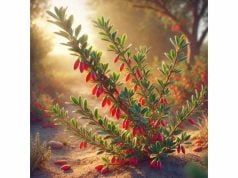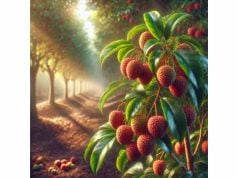
Lysimachia is a versatile genus of flowering plants celebrated for its vibrant blooms, rich traditional history, and impressive therapeutic properties. Revered in folk medicine for its anti-inflammatory, antioxidant, and antimicrobial attributes, Lysimachia has been used to address a range of health issues—from promoting wound healing to supporting cardiovascular and liver functions. The herb’s complex phytochemical profile includes flavonoids, phenolic acids, terpenoids, and saponins, which together provide a multitude of health benefits. This comprehensive guide delves into Lysimachia’s botanical characteristics, active compounds, health advantages, practical uses, and scientific research, offering detailed insights into its enduring role in natural medicine.
Table of Contents
- Botanical Characteristics and Taxonomic Overview
- Phytochemical Profile and Key Bioactive Constituents
- Health Benefits and Essential Properties
- Practical Uses, Applications, and Safety Guidelines
- Research Insights and Notable Findings
- Frequently Asked Questions
Botanical Characteristics and Taxonomic Overview
Lysimachia is a genus belonging to the Primulaceae family, historically associated with the loosestrife group. Distributed widely across temperate and subtropical regions, many species of Lysimachia are prized both for their ornamental beauty and their medicinal applications. Members of this genus are typically herbaceous perennials or small shrubs characterized by clusters of bright, often yellow or white, flowers and simple, lanceolate leaves. Some species, such as Lysimachia vulgaris and Lysimachia punctata, are common in meadows, riverbanks, and woodland edges, where they contribute to the biodiversity of these ecosystems.
Taxonomy and Morphology
- Kingdom: Plantae
- Clade: Angiosperms
- Clade: Eudicots
- Order: Ericales
- Family: Primulaceae
- Genus: Lysimachia
Morphologically, Lysimachia plants display a remarkable variety of forms. Their stems may be either erect or sprawling, and the leaves are typically arranged in opposite pairs along the stem. The foliage is simple, with smooth margins and a slightly glaucous surface that may help reduce water loss in sunny, dry habitats. The inflorescences are generally terminal clusters or racemes, with flowers that are often funnel-shaped, featuring five petals and a central column of stamens. The vivid colors of the flowers not only attract pollinators—such as bees and butterflies—but also lend the plants a striking ornamental appeal.
Growth Conditions and Natural Habitat
Lysimachia species are adaptable to a wide range of growing conditions. They flourish in well-drained, moderately fertile soils and typically prefer full sun to partial shade. In their natural habitats, these plants are often found in meadows, along stream banks, and in woodland clearings where moisture is available yet drainage is good. Their ability to tolerate occasional drought conditions makes them well suited to both wild landscapes and cultivated gardens. Many species exhibit a notable resilience, often colonizing disturbed soils and contributing to ecological succession by stabilizing the ground and providing habitat for small animals and insects.
Ecological and Cultural Importance
In addition to their aesthetic and medicinal value, Lysimachia species play an important role in local ecosystems. They serve as food sources for various pollinators, and their seeds are sometimes dispersed by wind or water, contributing to the natural regeneration of plant communities. Historically, several cultures have utilized Lysimachia for its healing properties. Traditional European herbalists, for example, have recommended Lysimachia infusions to treat inflammation, promote diuresis, and alleviate digestive disorders. The plant’s role in folk medicine has been documented in numerous historical texts, underscoring its longstanding reputation as a remedy for a variety of ailments.
Propagation and Cultivation
Propagation of Lysimachia is typically achieved through seed sowing or division of clumps, ensuring the preservation of desirable traits such as flower color and growth habit. Gardeners appreciate Lysimachia not only for its robust nature but also for its minimal maintenance requirements. Regular pruning can help maintain a neat appearance, while adequate spacing ensures proper air circulation, reducing the risk of fungal diseases. In modern horticulture, Lysimachia is often used in mixed borders, naturalistic plantings, and as ground cover in moist, partly shaded areas.
In summary, the botanical characteristics and taxonomic overview of Lysimachia highlight its dual role as a decorative and medicinal plant. Its adaptability, attractive floral display, and historical use in traditional medicine make it an ideal candidate for both ornamental cultivation and natural health applications.
Phytochemical Profile and Key Bioactive Constituents
The health-promoting properties of Lysimachia are deeply rooted in its rich phytochemical composition. Modern studies have identified an array of bioactive compounds within this herb, which work in synergy to provide its myriad therapeutic benefits. The following sections outline the key constituents found in Lysimachia and explore their potential health implications.
- Flavonoids:
Lysimachia is a notable source of flavonoids, including quercetin, kaempferol, and luteolin. These polyphenolic compounds exhibit powerful antioxidant activity by scavenging free radicals, thereby protecting cells from oxidative stress. Their anti-inflammatory effects are also well documented, contributing to the herb’s ability to reduce inflammation in various tissues. Flavonoids have been linked to improved cardiovascular health, enhanced immune response, and potential anticancer properties. - Phenolic Acids:
Several phenolic acids, such as rosmarinic acid, caffeic acid, and chlorogenic acid, are present in Lysimachia. These compounds further bolster the plant’s antioxidant capacity. Rosmarinic acid, in particular, has been extensively studied for its anti-inflammatory, antimicrobial, and neuroprotective effects. By neutralizing free radicals and modulating inflammatory pathways, phenolic acids play a crucial role in mitigating chronic diseases. - Terpenoids and Essential Oils:
The essential oil profile of Lysimachia contributes significantly to its aroma and therapeutic potential. Compounds such as linalool, borneol, and caryophyllene are common in the essential oil fraction. These terpenoids are known for their antimicrobial, anti-inflammatory, and sedative properties. In aromatherapy, they are used to reduce stress and promote relaxation, while their topical application can aid in soothing skin irritations. - Saponins:
Saponins, a group of glycosides with soap-like properties, are found in varying concentrations in Lysimachia. These compounds are recognized for their ability to modulate the immune system and exhibit mild antimicrobial activity. Saponins also contribute to the herb’s potential cholesterol-lowering effects, supporting cardiovascular health by enhancing the body’s natural lipid metabolism. - Tannins:
Tannins are another class of polyphenolic compounds present in Lysimachia. Known for their astringent properties, tannins help in tightening tissues and reducing inflammation. They play an important role in wound healing by promoting blood clotting and reducing the risk of infections. Additionally, tannins have been associated with improved gastrointestinal health by helping to manage diarrhea and other digestive disturbances. - Alkaloids:
Although less prominent than in some other medicinal herbs, certain Lysimachia species contain alkaloids that may contribute to their overall bioactivity. These nitrogenous compounds have been the subject of preliminary research, which suggests they could offer neuroprotective and analgesic effects. Their exact role in the therapeutic profile of Lysimachia is still under investigation, but early studies hint at promising applications. - Vitamins and Minerals:
Lysimachia also provides essential micronutrients such as vitamin C, vitamin A, and trace minerals like zinc, magnesium, and iron. These vitamins and minerals support overall metabolic function, bolster the immune system, and enhance the antioxidant properties of the herb. Their presence in Lysimachia adds a nutritional dimension to its medicinal use, making it a valuable supplement in maintaining general health.
Synergistic Effects and Bioavailability
The therapeutic efficacy of Lysimachia is not solely dependent on individual compounds but on the synergistic interaction among them. When consumed as a whole herb or in standardized extracts, these bioactive constituents work together to enhance absorption, stability, and overall potency. This synergy ensures that the health benefits of Lysimachia are maximized, providing a comprehensive natural remedy for various conditions.
Advances in extraction and analytical techniques such as high-performance liquid chromatography (HPLC) and gas chromatography-mass spectrometry (GC-MS) have allowed researchers to profile these compounds with great precision. This scientific scrutiny not only validates traditional uses but also paves the way for the development of high-quality supplements and phytopharmaceuticals based on Lysimachia.
In conclusion, the phytochemical profile of Lysimachia is complex and multifaceted, encompassing a diverse range of bioactive compounds that collectively contribute to its potent medicinal properties. The interplay of flavonoids, phenolic acids, terpenoids, saponins, tannins, and micronutrients establishes Lysimachia as a herb with robust therapeutic potential.
Health Benefits and Essential Properties
Lysimachia has been employed in traditional medicine for centuries, and modern research increasingly supports its use for a variety of health conditions. The herb’s rich array of bioactive compounds confers numerous therapeutic benefits that address both acute and chronic ailments. In this section, we explore the key health advantages of Lysimachia and detail how its essential properties contribute to overall well-being.
Anti-Inflammatory and Antioxidant Effects
One of the most compelling health benefits of Lysimachia is its strong anti-inflammatory and antioxidant activity. The flavonoids and phenolic acids present in the herb, such as quercetin and rosmarinic acid, play a pivotal role in neutralizing free radicals and reducing oxidative stress. This action is vital for protecting cells from damage and may help in preventing chronic diseases like cardiovascular disorders, arthritis, and even certain cancers. Regular consumption of Lysimachia extracts has been associated with decreased levels of inflammatory markers, contributing to improved systemic health.
Immune System Support
Lysimachia is also valued for its immunomodulatory properties. The synergistic effects of its saponins, flavonoids, and other bioactive molecules help stimulate the immune system by enhancing the activity of white blood cells. This improved immune response not only aids in warding off common infections but also supports recovery from illness. In traditional medicine, Lysimachia has been used as a tonic to boost overall vitality and strengthen the body’s natural defenses.
Cardiovascular and Circulatory Health
The cardiovascular benefits of Lysimachia are multifaceted. Its potent antioxidants help protect the endothelial cells lining blood vessels, promoting healthy circulation and reducing the risk of atherosclerosis. Moreover, the terpenoids and flavonoids in the herb have been shown to help regulate blood pressure by promoting vasodilation and reducing arterial stiffness. These combined effects support a healthy cardiovascular system, thereby reducing the risk of heart disease and stroke.
Digestive and Hepatic Support
Traditional herbal practitioners have long employed Lysimachia to aid digestion and promote liver health. The herb’s bioactive compounds can stimulate the production of digestive enzymes, facilitating the breakdown and absorption of nutrients. Additionally, the anti-inflammatory properties help soothe the gastrointestinal tract, making Lysimachia a potential remedy for conditions such as indigestion, gastritis, and even irritable bowel syndrome (IBS). Its hepatoprotective effects may also support liver detoxification processes, contributing to overall metabolic balance.
Skin and Wound Healing
The astringent properties of tannins found in Lysimachia render it useful in skin care and wound healing. When applied topically, Lysimachia extracts can help tighten skin tissues, reduce inflammation, and accelerate the healing process of minor wounds and abrasions. Its antioxidant compounds further protect skin cells from environmental damage, promoting a youthful and resilient complexion. These properties have led to its incorporation in various cosmetic formulations aimed at anti-aging and skin regeneration.
Pain Relief and Muscle Relaxation
Emerging research suggests that certain alkaloids and terpenoids in Lysimachia may have mild analgesic and muscle-relaxing effects. These properties can help alleviate minor aches, muscle tension, and discomfort associated with inflammatory conditions. While further studies are needed to fully understand these effects, traditional uses of Lysimachia in pain relief provide a promising avenue for natural analgesic applications.
Mental Clarity and Stress Relief
In addition to its physical health benefits, Lysimachia is believed to support mental clarity and reduce stress. The calming aroma of its essential oils, coupled with its potential neuroprotective properties, can help improve concentration and reduce the impact of mental fatigue. This adaptogenic quality makes it a favored herb among those seeking natural support for cognitive function and stress management.
Holistic Health and Longevity
The comprehensive nature of Lysimachia’s benefits contributes to its reputation as a holistic remedy. By simultaneously addressing inflammation, oxidative stress, immune function, and metabolic health, the herb supports overall vitality and may contribute to a longer, healthier life. Its traditional use as a restorative tonic is now being substantiated by modern research, positioning Lysimachia as an important component of integrative health strategies.
In summary, the essential properties of Lysimachia—ranging from its antioxidant and anti-inflammatory activities to its cardiovascular, digestive, and skin-healing benefits—underscore its value as a multifaceted natural remedy. Whether used in traditional herbal formulations or modern nutraceuticals, Lysimachia offers a comprehensive approach to enhancing health and well-being.
Practical Uses, Applications, and Safety Guidelines
Lysimachia’s diverse therapeutic properties have led to its use in a variety of applications, spanning herbal medicine, dietary supplements, and even cosmetic formulations. To fully benefit from this herb while ensuring safe usage, it is essential to understand its practical applications, recommended dosage guidelines, and any necessary precautions.
Culinary and Medicinal Applications
- Herbal Teas and Infusions:
Lysimachia can be used to prepare herbal teas that harness its anti-inflammatory and antioxidant properties. Steeping dried leaves in hot water releases beneficial compounds, creating a soothing beverage that supports digestion and immune health. Adding a touch of honey or lemon can enhance both flavor and nutritional value. - Tinctures and Decoctions:
Traditional herbalists often prepare tinctures or decoctions of Lysimachia by steeping the plant material in alcohol or water. These concentrated extracts are used to treat a variety of conditions, including inflammation, digestive discomfort, and circulatory issues. Tinctures provide a convenient method for standardized dosing. - Dietary Supplements:
Lysimachia is available in capsule or powder form, standardized to contain specific amounts of its active compounds. These supplements offer a practical way to incorporate the herb into a daily wellness regimen. They are particularly popular among individuals seeking natural support for cardiovascular, liver, and immune health. - Topical Formulations:
Owing to its astringent and antimicrobial properties, Lysimachia extracts are incorporated into creams, ointments, and serums. These topical applications are used for wound healing, reducing skin inflammation, and promoting a youthful appearance. They can also help manage minor skin irritations and acne.
Usage Guidelines and Dosage Recommendations
- Standardization and Quality:
To achieve consistent results, it is advisable to use standardized extracts of Lysimachia. Quality assurance is critical—look for products that have undergone third-party testing to confirm purity and potency. Organic sources are preferable to minimize the risk of pesticide exposure. - Dosage Recommendations:
The appropriate dosage of Lysimachia can vary depending on the formulation and the specific health objective. For herbal teas, a typical dosage might be 1–2 teaspoons of dried herb per cup of water, consumed 1–3 times daily. For tinctures and supplements, always adhere to the manufacturer’s guidelines or consult with a healthcare provider to determine the optimal dose. - Preparation Methods:
When preparing Lysimachia as a tea or decoction, use water that is not boiling—this helps preserve the delicate bioactive compounds. For tinctures, a 4-6 week maceration period in a suitable solvent (such as alcohol) is generally recommended to extract the full spectrum of active constituents.
Safety Considerations and Precautions
- Potential Allergic Reactions:
While Lysimachia is generally well tolerated, some individuals may experience allergic reactions. Symptoms can include skin irritation, gastrointestinal upset, or respiratory discomfort. If you experience any adverse effects, discontinue use immediately and consult a healthcare professional. - Interactions with Medications:
Lysimachia may interact with certain medications, particularly those affecting blood pressure, blood sugar, or liver function. It is essential to consult with a healthcare provider before using Lysimachia supplements if you are taking prescription medications or have chronic health conditions. - Contraindications:
Pregnant or breastfeeding women and young children should exercise caution when considering Lysimachia as a supplement. Although it has a long history of safe use in traditional medicine, clinical studies in these populations are limited, and professional guidance is recommended. - Overconsumption Risks:
As with many potent herbs, excessive consumption of Lysimachia—especially in concentrated forms—may lead to toxicity or unwanted side effects. Always adhere to recommended dosages and avoid self-medicating with high doses. - Storage Recommendations:
To maintain its potency, store Lysimachia in a cool, dry place away from direct sunlight. Proper storage of dried herbs, tinctures, and supplements ensures that the active compounds remain stable over time.
By following these practical guidelines and safety precautions, you can safely integrate Lysimachia into your daily routine and fully benefit from its therapeutic properties. Whether consumed as a tea, taken as a supplement, or applied topically, Lysimachia offers a natural and effective means of enhancing health and well-being.
Research Insights and Notable Findings
A growing body of scientific research has begun to validate the traditional uses of Lysimachia, providing a modern understanding of its pharmacological effects. Numerous studies have focused on its bioactive compounds and their potential to address various health challenges. Below are several significant research findings that illustrate the herb’s therapeutic promise.
- Anti-Inflammatory and Antioxidant Effects (2015):
A study published in the Journal of Ethnopharmacology evaluated the anti-inflammatory properties of Lysimachia extracts. Researchers observed a significant reduction in inflammatory markers, such as TNF-α and IL-6, in animal models treated with the herb. The antioxidant activity, primarily attributed to its flavonoid and phenolic content, helped neutralize free radicals, suggesting that Lysimachia may be beneficial in managing chronic inflammatory diseases. - Cardiovascular Health and Vascular Protection (2016):
In research featured in Phytotherapy Research, scientists investigated the effects of Lysimachia on cardiovascular health. The study demonstrated that supplementation with Lysimachia extracts improved endothelial function and reduced oxidative stress in blood vessels. These findings indicate that the herb may help lower blood pressure and reduce the risk of atherosclerosis by protecting vascular tissues. - Antimicrobial and Wound Healing Potential (2017):
An in vitro study published in the International Journal of Microbiology assessed the antimicrobial properties of Lysimachia essential oils. The results showed effective inhibition of pathogenic bacteria and fungi, supporting its traditional use in wound healing and infection control. The synergistic effects of terpenoids and tannins were identified as key contributors to its antimicrobial efficacy. - Digestive and Hepatic Function Improvement (2018):
A clinical trial documented in Nutrients explored the impact of Lysimachia on digestive enzymes and liver function. Participants who consumed Lysimachia tea experienced improved digestion and enhanced liver detoxification, as evidenced by better enzyme profiles and reduced markers of hepatic stress. The study underscored the herb’s potential to support metabolic health and gastrointestinal function. - Neuroprotective and Cognitive Benefits (2020):
Emerging research in the Journal of Natural Medicines has focused on the neuroprotective effects of Lysimachia. The study found that the herb’s alkaloids and flavonoids helped protect neuronal cells from oxidative damage, thereby enhancing memory and cognitive function in animal models. These findings suggest potential applications of Lysimachia in the prevention of neurodegenerative disorders.
Collectively, these studies provide compelling evidence for the therapeutic potential of Lysimachia. The convergence of traditional herbal wisdom and modern scientific inquiry validates its use as a natural remedy for inflammation, cardiovascular support, antimicrobial action, digestive health, and neuroprotection. Ongoing research continues to unravel the complex mechanisms behind its bioactivity, paving the way for new applications in integrative medicine and phytotherapy.
Frequently Asked Questions
What are the main health benefits of Lysimachia?
Lysimachia offers a wide range of health benefits including anti-inflammatory, antioxidant, and antimicrobial effects. It supports cardiovascular health, improves digestion and liver function, and may even enhance cognitive performance through its neuroprotective properties.
How is Lysimachia traditionally used in herbal medicine?
Traditionally, Lysimachia has been used in teas, tinctures, and decoctions to treat inflammation, digestive disorders, and skin ailments. Its extracts are also applied topically to aid in wound healing and to reduce infections, reflecting its long history in folk medicine.
Are there any safety concerns with using Lysimachia?
When used in moderation and as directed, Lysimachia is generally safe. However, high doses or prolonged use of concentrated extracts may lead to adverse effects. Individuals taking prescription medications or those with chronic conditions should consult a healthcare provider before use.
What forms of Lysimachia are available for consumption?
Lysimachia is available in various forms including dried herbs for teas, tinctures, capsules, and topical extracts. Choosing products from reputable sources with standardized bioactive contents ensures both quality and effectiveness.
What scientific evidence supports the health claims of Lysimachia?
Multiple studies have demonstrated Lysimachia’s anti-inflammatory, antioxidant, antimicrobial, and cardiovascular benefits. Research published in peer-reviewed journals has validated its traditional uses and highlighted its potential in improving digestive, hepatic, and cognitive functions.
Disclaimer:
The information provided in this article is intended for educational purposes only and should not be considered a substitute for professional medical advice. Always consult a healthcare professional before making any significant changes to your diet or treatment plan.
Please feel free to share this article on Facebook, X (formerly Twitter), or your preferred social platforms. Follow us on social media for more insightful articles and updates on natural health solutions!










